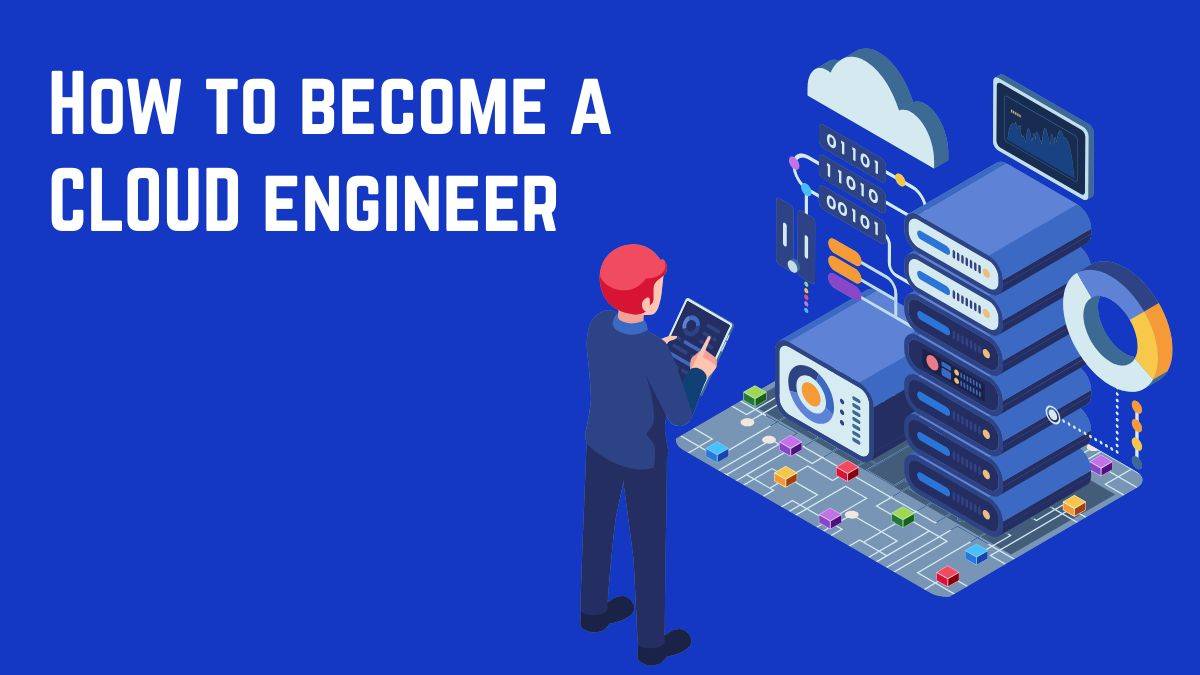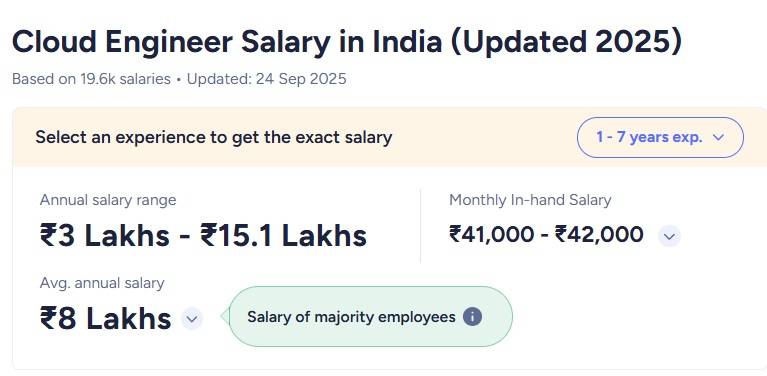How to Become a Cloud Engineer: Top Skills to Learn
Statista estimates that global data creation will possibly surpass 394 zettabytes daily by 2028. The need for cloud services will always be high, especially given the immense amount of data generated daily. Both businesses and individuals rely on cloud-based solutions to manage and store their data. To meet such high demands, cloud computing firms need competent cloud engineers; so, if you are interested in this growing domain and would like to know how to become a cloud engineer, then head to our article!
- What is a Cloud Engineer?
- What is the Role of a Cloud Engineer?
- How to Become a Cloud Engineer
- Cloud Engineer Salary in India
What is a Cloud Engineer?
Cloud engineers are IT professionals who design and implement cloud computing systems for companies. They ensure cloud systems work efficiently and securely, facilitating smooth operations. The cloud engineer monitors and troubleshoots issues in the cloud environment. They work with the IT team to ensure that cloud applications and services are well integrated with the company's other technology infrastructure.
What is the Role of a Cloud Engineer?
The job role of a cloud engineer includes.
- Maintaining and supporting cloud systems and services
- Managing, planning, designing and developing applications or infrastructure on the cloud
- Focusing on data security
- Managing resources, networking, and storage in the cloud
- Understanding and leveraging organisational assets such as data structures and algorithms, and cloud architecture
- Identifying metrics, monitoring and tracking performance, and optimising costs
- Automating cloud operations

How to Become a Cloud Engineer
Below is a clear and precise roadmap for you to become a cloud engineer:
Learn Computer Science Fundamentals
Learning the fundamentals of computer science and related topics is necessary. Before learning cloud, learn.
- Basic networking concepts such as IP, DNS, HTTP & VPN
- Operating systems like Linux, Unix, and Windows
- Databases, including SQL, PostgreSQL, and NoSQL
- Computer and network security
- Programming languages such as Java, C++, and Python
- Tools and platforms such as SQL, Kubernetes, Spark, Hadoop, Scala, Kafka, and Redshift
Pursue a bachelor's degree in Computer Science or a related stream. In addition, you can take online cloud computing courses or specialised short-term certifications.
Specialise in A Cloud Platform
The next step would be training on various cloud platforms. Consider,
AWS is recommended because of its vast documentation base and high demand for its workforce.
Learn Infrastructure As Code
IaC helps in automating deployments. Learn about the tools that enable you to write code and automatically build cloud resources. Some of the well-known ones include:
- AWS CloudFormation
- Pulumi
- Configuration management tools such as Puppet, Chef, Salt or Ansible
- Terraform
Master Automation and CI/CD Tools
Learn to work with popular tools such as:
- Jenkins
- GitHub Actions
- Docker
- Kubernetes (for container orchestration)
These skills will prepare you to work in DevOps environments.
Get Certified
Certifications are critical to demonstrate your skills. Some popularly accepted certifications are:
- AWS Certified Solutions Architect Associate
- Microsoft Certified: Azure Administrator Associate
- Google Associate Cloud Engineer
- Cloud+ (CompTIA)
Work on Real Projects
While learning the concepts is basically the fundamental requirement to becoming a cloud engineer, how these concepts really work is best learned by applying your learning to hands-on cloud computing projects. Here is how:
- Try to build a simple web app and deploy it on the cloud
- Automate server and database creation
- Upload your code to GitHub and document your processes
- Learn how to implement storage and database services, VPN, load balancing and scaling, cloud monitoring and application migration.
Cloud Engineer Salary in India
The average salary of a cloud engineer in India is Rs. 8 LPA, with the available salary range of Rs. 3 - 15 LPA.
Explore the salaries of cloud engineers across different cities in India.
| Location Name |
Average Salary |
Salary Range |
| Gurgaon |
Rs. 8.5 LPA |
Rs. 3 - 16 LPA |
| Bangalore |
Rs. 8 LPA |
Rs. 3 - 15 LPA |
| Hyderabad/Secunderabad |
Rs. 8 LPA |
Rs. 3.2 - 12.6 LPA |
| Noida |
Rs. 8 LPA |
Rs. 3 - 13 LPA |
| Pune |
Rs. 7.8 LPA |
Rs. 2.9 - 14 LPA |
| New Delhi |
Rs. 7.7 LPA |
Rs. 2.8 - 15 LPA |
| Kolkata |
Rs. 7.7 LPA |
Rs. 3 - 15 LPA |
| Chennai |
Rs. 7.3 LPA |
Rs. 2.7 - 11 LPA |
| Mumbai |
Rs. 7.3 LPA |
Rs. 2.5 - 11 LPA |
| Coimbatore |
Rs. 5.6 LPA |
Rs. 2.2 - 8 LPA |

 Call 8585951111
Call 8585951111

Rashmi Karan is a writer and editor with more than 15 years of exp., focusing on educational content. Her expertise is IT & Software domain. She also creates articles on trending tech like data science,